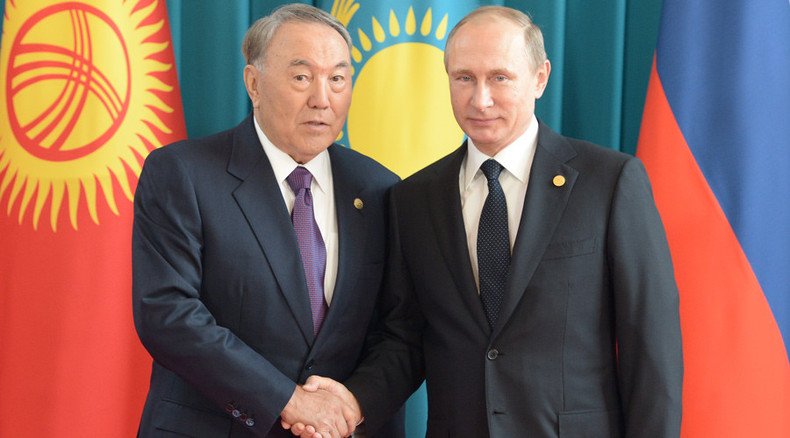Russia and Kazakhstan to share Caspian Sea crude

Russian President Vladimir Putin and Kazakh counterpart Nursultan Nazarbayev have signed an agreement to jointly develop the northern Caspian Sea oil deposits.
"We [Russia and Kazakhstan] have big plans on joint oil production in the Caspian Sea," said Putin after the meeting, adding that Russia is a transit for Kazakhstan's oil to foreign markets.
Presidential aide Yuri Ushakov said the document regulated oil production at the Tsentralnaya site in the North Caspian Sea.
Kyrgyzstan joins Russia-led Eurasian Economic Union http://t.co/z7aHeConLPpic.twitter.com/ENt1bM0oby
— RT (@RT_com) August 5, 2015Putin and Nazarbayev also discussed cooperation between the countries within the Eurasian Economic Union (EEU).
Putin said the economies of both Russia and Kazakhstan are experiencing difficult times, but trade between the two countries is growing in ruble terms. According to Putin, more than 6,000 Russian companies are working in Kazakhstan.
Nazarbayev said Russia remains a close and reliable neighbor and the EEU is gaining recognition globally.
Brazil wants free trade zone talks with Russia-led Eurasian Economic Union http://t.co/n6HfCSgioQpic.twitter.com/KyACB3ig3g
— RT (@RT_com) October 12, 2015The EEU is a Russia-led trade bloc established in 2015 on the basis of the Customs Union of Russia, Kazakhstan and Belarus. It currently has five members: Russia, Armenia, Belarus, Kazakhstan, Kyrgyzstan, while Tajikistan is a prospective member.
The EEU ensures free movement of goods and services, capital and labor, as well as a coordinated, coherent and unified economic policy for its members.












